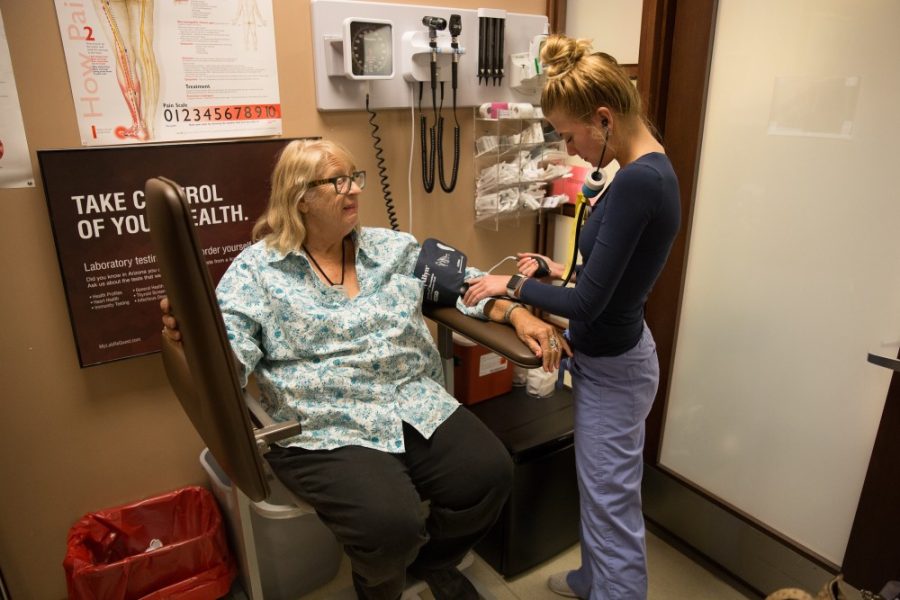A coalition of researchers, including several from the University of Arizona, have received a $10 million grant over five years to conduct research on the human immune system and aging.
The effectiveness of the human immune system begins to wane as we age, allowing for infectious diseases to affect those over 65 in a disproportional way, according to the CDC.
There are several established reasons and possible theories for why this occurs, but the topic can be complicated, especially when aging is brought into the equation — a topic still not fully understood.
“The immune system is a complex network of different cells and proteins that collectively monitor the entire body for signs of infection and damage,” said Megan Smithey, a research assistant professor in the Department of Immunobiology at the College of Medicine. “As people age, they become more susceptible to infection, cancers and autoimmune disorders, because their immune systems fail to work as well as they used to.”
This can be due to the lack of a certain type of white blood cells called lymphocytes and changes in the lymphoid organs, resulting in a less-effective system that leave an individual vulnerable to illness and disease, Smithey said.
Smithey is a member of a team headed by Janko Nikolich-Zugich, head of the Department of Immunobiology as well as co-head of the Arizona Center on Aging, among other positions. Its goal is to understand why this breakdown of the immune system occurs and what can be done to fix it.
“We will be working to understand the basis of defective immune cell production and maintenance, and methods to reverse these defects,” said Nikolich-Zugich.
The research proposal revolved around reviving the immune system of older animals, said Nikolich-Zugich. Research will begin soon, initially to be done on mice.
RELATED: Long-distance discovery: Tracing the origins of Turquoise in Arizona
Though research hasn’t yet begun, safety regulations and standards are already established, along with the goals and method of research.
For example, Smithey will serve as director of the Immunological Response and Rejuvenation Strategy Monitoring Core, responsible for testing for infectious organisms.
This research is important for several reasons, and could have significant effects on healthcare as the general age of the population rises, particularly through the 65 and over range.
“Because population over 65 years of age is rapidly growing and will make up a quarter of the U.S. population by 2050, their well-being is an urgent medical and societal problem,” Nikolich-Zugich said.
Essentially, Nikolich-Zugich said, more people are living longer, but this doesn’t necessarily correlate to a better quality of life.
A further understanding of the connection between aging and the degeneration of the immune system could enable medical professionals to prepare patients for a diagnosis, or understand the potential risks they may have with their health.
“To be able to identify who is at risk, and have a treatment that could help boost the immune system before the decline happens, would be a major improvement in the health and well-being of people as they get older,” Smithey said.
RELATED: Is it normal to feel this stressed?
There are other groups from across the U.S. involved in the project as well, who have met and worked with one another before.
They include the University of Georgia, Duke University, the Memorial Sloan-Kettering Cancer Center, The Fred Hutchinson Research Institute, MD Anderson Cancer Center and the University of Austin, Texas, according to Smithey.
“This group of scientists from across the U.S. have worked together in various different smaller groups for years, and it was really a natural progression for us to all try to start working together to tackle a bigger problem,” Smithey said.
Through their research, the team hopes to enable longer lifespans and a healthier population overall. Though it will take several years for the research to be cleared to move on to human subjects, it might be worth the wait to see what can be done to minimize the degeneration of the immune system.
Follow Nicole Morin on Twitter









